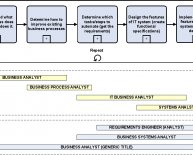
Kent verbal Reasoning
I am so clever that sometimes I don't understand a single word of what I am saying.
Oscar Wilde
These practice tests are designed for UNIVERSITY OF KENT STUDENTS AND GRADUATES.
Other web users are most welcome to use this test, but no feedback can be given or correspondence entered into regarding results.
Most employers who use psychometric tests in graduate selection will include a verbal reasoning test. This is because there are very few graduate careers which don't require the ability to understand, analyse and interpret written information, often of a complex or specialised nature.
This test includes a number of short passages of text followed by statements based on the information given in the passage. You are asked to indicate whether the statements are true or false, or whether it is not possible to say so either way. In answering these questions, use only the information given in the passage and do not try and answer them in the light of any more detailed knowledge which you personally may have.
Below you will find an example question to try. It is a selection of a passage of text which will be followed by four statements. Read the passage carefully and then, using only the information given in the passage, for each statement choose whether it is definitely true, definitely untrue, or you have insufficient information to answer.
The test has 32 questions and you will have 20 minutes to do them. At the end of the test (when 20 minutes have elapsed), you will be given a score. You can still continue answering questions for practice after this point, but your score will not change.
The test will start with four example questions which will not be marked or timed. Now click on the "First Question" button below to begin. Click on the button beneath your answer to answer it. You can change your answer by clicking on another button.You can also go back to the previous question, by clicking on the previous question button. When you have finished the test, click on "Get Your Score".
WHAT YOUR SCORE MEANS
As mentioned before, this test is for practice only, so you should not regard your result as of importance chiefly because the test was not taken under proper test conditions e.g. in a silent room with no disturbances. Your performance can also be distorted if you have a cold, or have not slept well. Also, evidence shows that international students or those from ethnic minorities may be disadvantaged in this type of test, due to language and cultural differences. If your first language is not English, your score is likely to be lower on such verbal tests than native English speakers. Mature students may also sometimes be disadvantaged and you should remember that your degree subject may change your performance - for example scientists are likely to do better on mathematical tests and Humanities students on verbal tests. Even your ability to use a mouse may influence your score! Having said all this it is still natural for you to want some feedback on your performance.
Score
- 21 or above. This is an above average score compared to other Kent graduates who have taken the test.
- 18 - 20. This is in the average group compared to other Kent graduates who have taken this test.
- 17 or below. This is below the typical score of Kent graduates who have taken the test, but remember that a number of factors may have distorted your score - see above for some of these factors. You may wish to discuss your results with a careers adviser.
The answers to this test are not confidential and are as follows:
1. Until the nineteenth century, most people could only read with difficulty. Can't Say
2. In ancient times, literature was intended to be read aloud. True
3. Classical histories were passed on orally and never written down. False
4. Only people with literacy problems now read aloud. True
5. Most illnesses in developing countries are caused by vitamin and mineral deficiencies. Can't Say
6. Micronutrients provide inadequate nourishment to maintain a healthy life. False
7. Vitamin A, iodine and iron are the only micronutrients that people need in their diet. Can't Say
8. Correcting micronutrient deficiencies would cost about $2 per person per year. False
9. Only mild cases of asthma can be helped by anti-inflammatory therapy. False
10. Use of bronchiodilators has been increasing since 1991. False
11. Doctors are reluctant to treat asthma with inhaled steroids for fear of potential side-effects. Can't Say
12. Bronchiodilators are the single most prescribed treatment for asthma. True
13. Political changes in Eastern Europe led to a change in relations between Sweden and the European Community. True
14. The European Community rejected Sweden's application for membership because of its neutrality. Can't Say
15. After abandoning its policy of neutrality, Sweden applied to join the European Community. Can't Say
16. Sweden applied for membership of the European Community after other neutral countries had joined. Can't Say
17. Buddhism was adopted by the court nobility at the urging of the emperor. False
18. The introduction of Buddhism to Japan led to great political unrest and social confusion. False
19. Buddhism replaced the Shinto religion which had previously been followed in Japan. Can't Say
20. Japanese arts and culture were greatly enriched by the introduction of Buddhism. True
21. Japanese men do not share household chores and childcare with their wives. True
22. A quarter of all part-time workers in Japan are female. Can't Say
23. Part-time workers hold a low status in Japanese companies. True
24. Women in Japan are unwilling to work overtime. Can't Say
25. There is no clear cause for abdominal pain in children. True
26. Abdominal pain in children may be psychosomatic in nature. True
27. Drinking milk may help to prevent abdominal pain in children. Can't Say
28. Children who have problems sleeping are more likely to suffer from abdominal pain. Can't Say
29. After the fall of the Roman Empire, most people who had previously spoken Latin stopped using it. True
30. Latin continued to be used in church services because of the continuing influence of Rome. False
31. Priests spoke a different language from the common people. True
32. Prior to the fall of the Roman Empire, Latin had been established by law as the language of the Church in western Europe. False
Example reasoning for some of the statements
This type of verbal test often contains a degree of ambiguity, unlike mathematical reasoning tests where the answers are more definite. Although they are not intended to be trick questions, there is often room for argument in the interpretation of the answers. The tests on our web site are not rigorous and are offered to help users to practise this type of test and gain some familiarity. If you are a University of Kent student, you are welcome to come to the Careers Service to discuss these tests.















